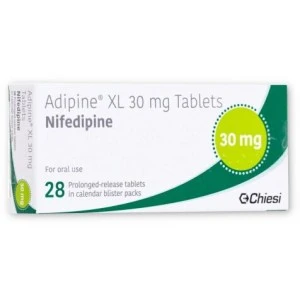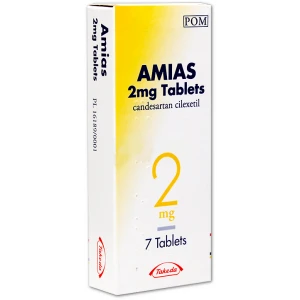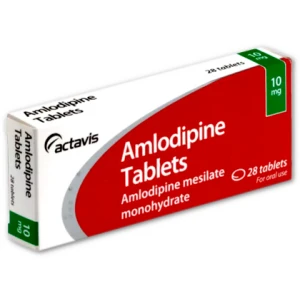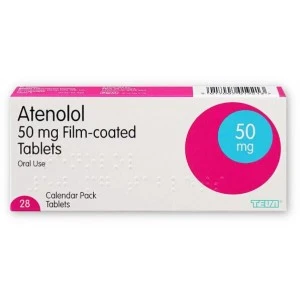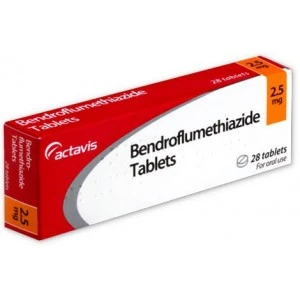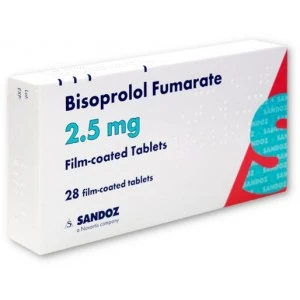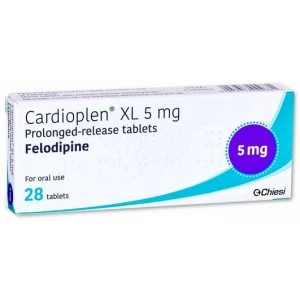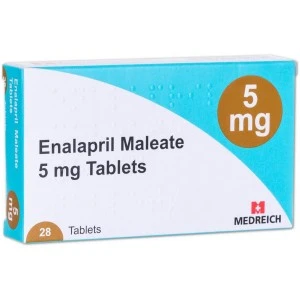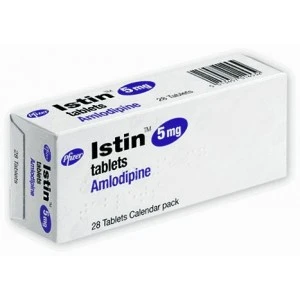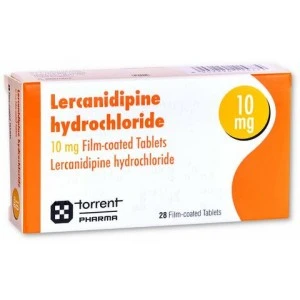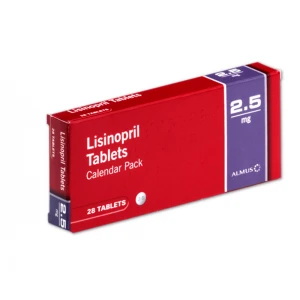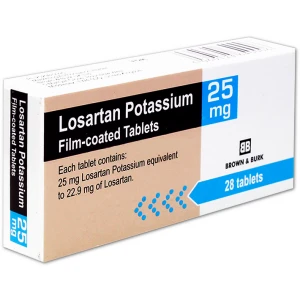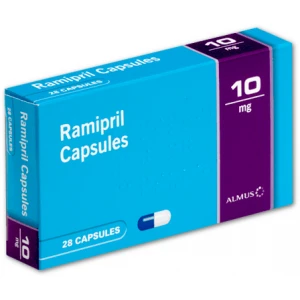PLEASE NOTE: This treatment is not available through our online pharmacy service. This page is for information only. If you are experiencing any of the symptoms related to the condition(s) this medication treats, we strongly recommend that you see your GP in person.
High blood pressure
If you're looking to buy high blood pressure treatments online, Prescription Doctor's safe and secure online private prescription service can help you get the treatment you need delivered straight to your door.
Adipine
- Lowers blood pressure
- Prevents complications
- Available from a UK-registered pharmacy
Amias
- Branded by Takeda
- Lowers blood pressure
- Available from a UK-registered pharmacy
Amlodipine
- Generic treatment
- Easy to take
- Online prescribers at hand
Atenolol
- Treats hypertension
- Relaxes blood vessels
- Available from a UK-registered pharmacy
Bendroflumethiazide
- Lowers blood pressure
- Removes excess fluid
- Available from a UK registered pharmacy
Bisoprolol
- Alleviates hypertension
- Decreases heart rate
- Available from a UK registered pharmacy
Cardioplen XL
- Brand of felodipine
- One-a-day tablet
- Available from a UK-based pharmacy
Enalapril
- Treats raised blood pressure
- Effects last 24 hours
- Can be taken with or without food
Istin
- Pfizer brand
- Easy to take tablets
- Decreases complication risk
Lercanidipine
- Blocks calcium
- Prevents complications
- Generic treatment
Lisinopril
- Decreases hypertension
- Easy to take tablet
- Reduces risk of complications
Losartan
- Lowers blood pressure
- One-a-day dose
- Prevents cardiovascular diseases
Ramipril
- Relaxes blood vessels
- Administered once a day
- Effective in reducing the risk of complications
Buy high blood pressure medication online in the UK
If you have already been prescribed a high blood pressure medication, such as Ramipril or Amlodipine, you can buy blood pressure medicine online from our UK-regulated pharmacy.
When you order high blood pressure medication through our online service, we will require you to complete an online medical form to answer questions about your general health and medical condition. This is to ensure that our prescribers can safely prescribe your treatment. All orders are subject to the doctor's approval.
If our doctor approves your order before 3pm, Monday to Friday, our UK-based pharmacy will dispense and dispatch your item in discreet packaging straight to your door via a next-day courier service.
What is high blood pressure?
High blood pressure, or hypertension, occurs when your blood is pumped around your body with more force than necessary, placing additional strain on your blood vessels and heart. In most cases, there are no discernible symptoms which would indicate high blood pressure. The only way to know if you have the condition is to have your blood pressure checked by your doctor.
According to NHS Digital, high blood pressure (hypertension) had a prevalence of 14% of England's population between 2019 and 2020. It is estimated that 1 in 4 adults in England has hypertension, which is believed to be on the rise.
Several contributing factors can increase your risk of developing high blood pressure, including certain lifestyle habits and underlying health conditions.
Such risk factors include:
- A family history of hypertension
- Age
- Being overweight
- Consuming high amounts of alcohol
- Consuming high amounts of salt
- Diabetes
- Kidney disease
- Long-term sleep deprivation
- Lupus
- Not exercising
- Sleep apnoea
- Smoking
- Underactive thyroid
Some medicines may also increase your risk of developing high blood pressure, including:
- Antidepressants (such as Venlafaxine)
- Contraceptive pills
- Non-steroidal anti-inflammatory drugs (NSAIDs)
- Some cough, cold and flu medicines
- Steroids
If you are unsure whether you are at an increased risk of developing high blood pressure, consult your doctor.
Knowing if you are at an increased risk of developing high blood pressure early on allows you to make appropriate lifestyle adjustments to mitigate your risk.
Your doctor will monitor your condition over time to ensure your blood pressure is controlled. They may request you to regularly check your blood pressure at home using a home blood pressure meter.
How can I prevent high blood pressure?
High blood pressure can be prevented by living an active and healthy lifestyle.
Eating plenty of fruits and vegetables, as well as reducing your salt consumption, can significantly lower your risk. The NHS recommends consuming less than 6g of salt daily, which is approximately equivalent to a teaspoon. Eating a healthy, balanced diet that is low in fat can effectively reduce your risk.
In addition to a balanced diet, it's essential to exercise for at least 20 minutes a day. Staying active can help lower your blood pressure and maintain a healthy heart. Exercise can also help you lose weight, which in turn can have a positive effect on your blood pressure.
Other lifestyle changes include cutting down on alcohol and caffeine. Not only do these two substances - alcohol and caffeine - affect blood pressure, they are often found in beverages high in sugar, contain little nutritional value, or are combined with other excipients that may affect your blood pressure.
We encourage you to consult with your doctor or a registered dietitian before making significant changes to your diet.
If you suffer from an underlying medical condition which might put you at an increased risk of developing high blood pressure, such as diabetes or hypothyroidism, you should discuss treatments with your doctor. Treating and managing an underlying health condition may reduce your risk of developing high blood pressure.
How do I know if I have high blood pressure?
It is unlikely that you can determine whether your blood pressure is too high solely through symptoms.
The best way to know whether you have high blood pressure is to get tested. You can have your blood pressure tested at your GP surgery by your doctor, at some pharmacies, during an NHS Health Check (available for adults aged 40-74 in England), or at home using a home blood pressure monitor.
What happens in a blood pressure test?
During a blood pressure check, a cuff or band is fixed to the upper arm. Your arm will usually be placed on a table beside you purely for support. You may be instructed not to talk or react to the machine. It's essential to remain calm and relaxed during your blood pressure test. If you are stressed or anxious, the result of your blood pressure test may not be accurate.
Once you are relaxed, the test will proceed. The cuff will begin to inflate, restricting the blood flow through your arm. This will feel like a tight, squeezing sensation. You may feel tingling or slight discomfort, but this will only last for a few seconds. After a couple of seconds, the cuff will slowly deflate and loosen, and a measurement will be displayed in millimetres of mercury (mmHg).
What does the blood pressure reading mean?
The measurement is usually read like a fraction (such as ninety over sixty). The larger number is the force at which your heart pumps blood around your body. The lower number is the resistance your arteries provide against the blood flow.
A normal blood pressure reading is between 90/60 mmHg and 120/80 mmHg.
A blood pressure reading of 140/90 mmHg or higher is considered to be high.
This means that your heart is exerting more effort to pump blood around your body, and that your arteries are offering greater resistance to the flow of blood. The increased friction of blood against your arteries can cause damage to the delicate arterial tissue. This can lead to hardening of the arteries, known as arteriosclerosis.
Where can I get my blood pressure checked?
Getting your blood pressure checked isn't particularly challenging. If you attend regular check-ups with your doctor, it is likely that they will test your blood pressure during your visit. You can, of course, ask your doctor to check your blood pressure during your next appointment.
Some pharmacies can also check your blood pressure. If you're unsure, please ask at the counter. While they may not be able to conduct a blood pressure test on-site, they may offer home blood pressure monitoring devices.
Testing your blood pressure at home
If your doctor has advised you to regularly monitor your blood pressure, they may recommend using a home blood pressure monitoring device.
These devices are relatively simple to use and can provide accurate results in a few seconds. They consist of a cuff or band that goes around your biceps at the top of your arm, attached to a box with a digital display. They are inexpensive and can be bought for as little as £10 from pharmacies and even some supermarkets. If you are unsure which blood pressure monitor is suitable for you, ask your doctor or a pharmacist. The British Heart Foundation (BHF) has further information on what to look for when buying blood pressure monitors.
Once you have a reading of your blood pressure, it's essential to record it so that you can track how it changes over time. Your doctor may provide you with a specific diary to fill in. If you already keep a diary, such as a food diary to track your meals or a diabetic diary to track your blood sugar levels, you can use that to record your blood pressure.
Treating high blood pressure
If you have been diagnosed with high blood pressure, your doctor will discuss with you the most suitable course of treatment, which may include a combination of medication and lifestyle changes. NICE has a useful PDF which can help you understand the discussion you need to have with your doctor about high blood pressure. You can download the NICE guide here.
A common treatment for high blood pressure is a class of drugs called ACE inhibitors. When taken, these medicines dilate your blood vessels, reducing the resistance to blood flow and allowing your blood to circulate more efficiently throughout your body. These medications are typically recommended for individuals under the age of 55.
If you are over 55 or of African or Caribbean descent, your doctor may prescribe a class of drugs called calcium channel blockers (CCBs). These drugs block calcium from permeating the walls of blood vessels. When absorbed by the muscular tissue of blood vessels, calcium causes the blood vessels to contract, which increases blood pressure.
It's essential to always follow your doctor's advice and take your medication as prescribed. Be mindful of your lifestyle and make informed, sensible decisions about your diet and physical activity. If you are unsure about how much exercise you should be doing or how much you should be eating, speak to your doctor.
Before you buy high blood pressure medicine online, it's vital that you discuss your condition with your doctor. They will be able to ascertain the most appropriate course of treatment for you based on your medical history and condition.
During your course of treatment, you may be required to have your blood pressure checked regularly. This is to ensure that the medicine is working effectively and indicate whether adjustments may need to be made during your course of treatment.
References
NHS, 2019. High Blood Pressure (Hypertension)
© 2013 - 2025 Al Muhsineen Limited. All Rights Reserved. Registered Pharmacy: 34 Halliwell Road, Bolton BL1 8RL. Registered Office: 254 First Floor, Shearbrow, Blackburn, England, BB1 8DS

